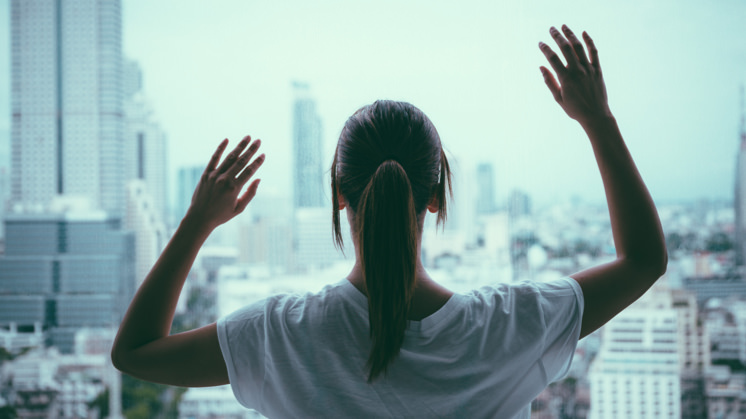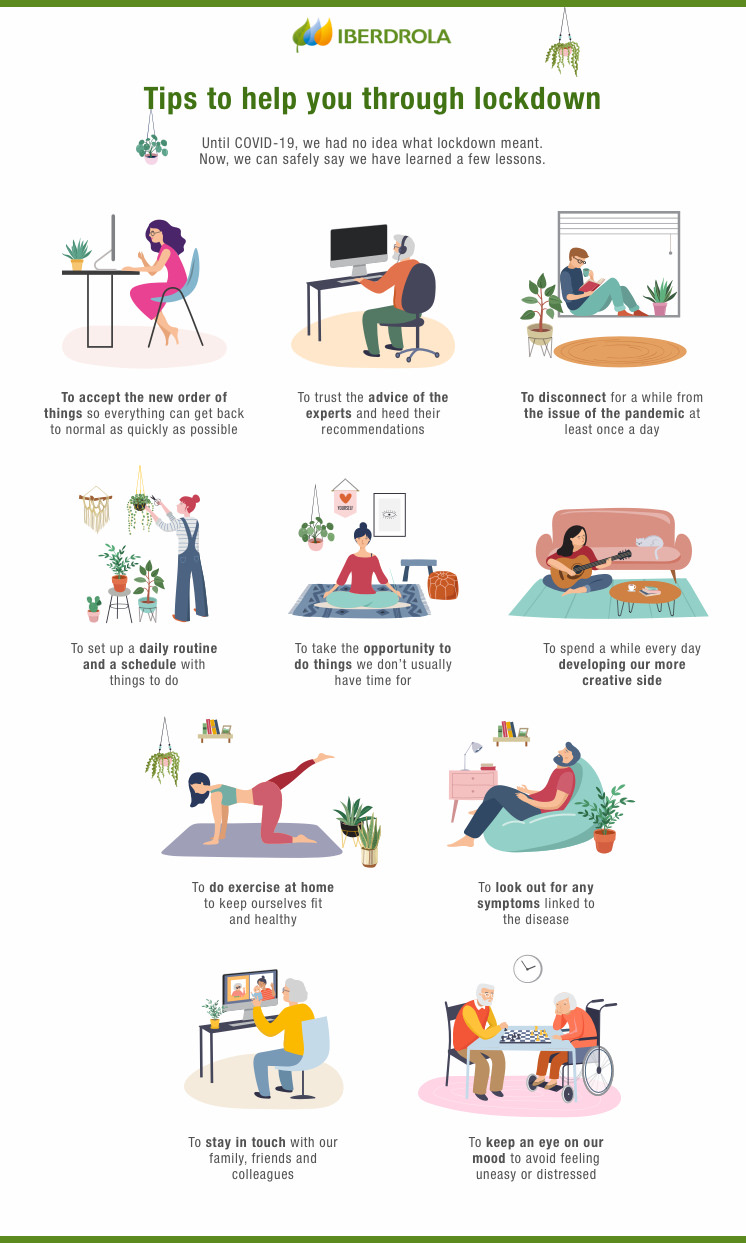How to spend your time at home
Tips to lockdown: keeping your mind and body healthy
In December 2019 a new type of coronavirus arised in China. Its expansion around the world forced millions of people to be confined into their homes in the next months. How can we cope in this situation? How can we make it more bearable? How can we keep ourselves entertained? We bring you a list of some of the key lessons that confinement has taught us, in the hope that this global lockdown will never happen again.

The rapid spread of COVID-19 since it first broke out in China late last year has led to an unprecedented global health crisis. Faced by the ruthless onslaught of this illness, which we still know so little about, the world's organisations and governments decided to confine millions of people to their homes as an unprecedented means to achieve one common goal: slow the spread. According to the WHO — the World Health Organisation —, over three million people worldwide were suffering from the coronavirus by the end of April.
What is a lockdown and what are its consequences?
The only weapons we have to fight the coronavirus outbreak in the absence of a vaccine are hygiene and social distancing — keeping 1.5 to 2 metres apart —. Confining millions has proven to be one of the most effective measures in stopping the spread of the virus and has one fundamental goal: flatten the curve of infections and reduce the number of hospitalisations due to COVID-19 — this being the official name of the disease caused by the SARS-CoV-2 strain — to avoid overburdening healthcare systems.
Being forced to stay at home — and the social, financial and occupational downtime this entails — is not easy for a population that is used to a frantic lifestyle involving thousands of personal interactions every day. A study by the American Centre for Disease Control and Prevention (CDC), reveals that confinement leads to significant levels of stress in both adults and children, which often upsets our sleep patterns and eating habits, can cause anxiety and other problems.
Tips to help you through quarantine / lockdown
It is vital to adapt to the changes that confinement entails. Whatever your age, the ancient adage mens sana in corpore sano is still as true as ever: a healthy mind and body is one of the keys to feeling balanced, combating stress and facing the situation with a positive mindset. Here are some useful tips:

SEE INFOGRAPHIC: Tips to help you through lockdown [PDF]
Digital tools are a great help during confinement, especially for people in quarantine who have been ill with the disease. According to a survey published by GlobalWebIndex related with the impact of coronavirus in April, 63.5% of respondents worldwide have significantly increased their use of smartphones and tablets, especially to keep in touch with friends and family — 61.2% —, and also to work out — 47.9% —.
Tips for spending time at home
Whether you are alone or with your family, lockdown can be equally tough and the hours may seem endless for people whose work has ground to a halt because they are unable to work from home. The change is also hard for the little ones: School has suddenly stopped in a lot of countries and they are having to get used to a new type of digital learning.
What to do at home with children?
Being inventive is a crucial skill to avoid endless hours glued to a TV screen, tablet or smartphone. Arts and crafts have made a big comeback, as have traditional pastimes. Here are some ideas to keep your kids entertained and enjoy quality family time:
 Creativity is key
Creativity is key
Confinement is a great excuse to bring out their creative side: Try shooting a short film and playing it in the living room, recording a radio show, sing-along sessions, shadow play, or painting pictures.
 The classics are back
The classics are back
All-time board games never go out of fashion! Trivial Pursuits, Monopoly, Pictionary, card games... Arts and crafts are a guaranteed success too, like making paper cut-outs or a collage, and you can't go wrong with classics such as hide-and-seek or hot and cold.
 The house is the playing field
The house is the playing field
We know a house has its limitations, but with a bit of imagination, every room or object has hidden potential. Just a few ideas: pillow fights at the room, races along the hall, ping-pong sessions on living room table and anything else you can think of.
What to do when you are alone at home?
Lockdown can be particularly tough on people who are spending confinement on their own, whatever their age. The WHO explains that their sense of unease, anxiety and stress is likely to be more intense. To keep these feelings at bay, it is vital to follow a routine, do exercise and find time for leisure — films, series, books, music —. According to the GlobalWebIndex survey, hobbies such as baking have gained in popularity among the over 30s — with 35.1% of them spending more time in the kitchen — and others, such as DIY work, painting and yoga have gained ground too.




